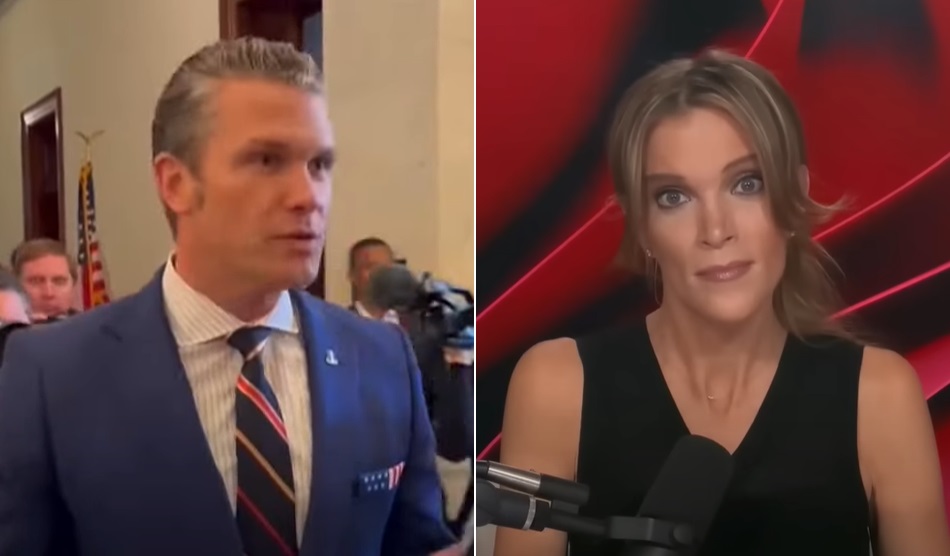In a recent commentary, Megyn Kelly offered a detailed analysis of allegations against Pete Hegseth, a prominent figure who was recently targeted by renewed claims of sexual assault from a 2017 incident that had already been investigated and dismissed by law enforcement. The Monterey Police Department had looked into an allegation from a married woman, referred to as Jane Doe, who accused Hegseth of assaulting her at a political event. However, upon investigation, the police found insufficient evidence to support her claims, which ultimately led to no charges being filed against Hegseth. Kelly illuminated what she perceives as a broader issue in the media’s treatment of powerful men accused of misconduct, suggesting there exists selective outrage that ignores prominent figures embroiled in serious allegations, such as Bill Clinton and Joe Biden, while fervently pursuing attacks against political adversaries.
Kelly elaborated on the investigation’s findings, mentioning that there was video footage of the incident that depicted a consensual interaction, contrasting with Jane Doe’s assertions. She noted that not only was Hegseth’s demeanor more in line with someone who was slightly intoxicated, but also that Doe appeared sober during the filming. Furthermore, Kelly highlighted inconsistencies in Jane Doe’s actions the evening of the alleged assault, including her failure to respond to her husband’s messages while with Hegseth, and her subsequent excuse that she must have “fallen asleep.” This pattern raised doubts about the validity of her allegations, leading investigators to question the reliability of her account.
Kelly’s exploration of the police report illustrated additional troubling aspects of Jane Doe’s behavior post-incident. She pointed out that when confronted with a request for a pretext phone call to discuss the incident with Hegseth, Jane Doe visibly expressed distress and declined to participate. According to Kelly, this refusal could suggest a lack of confidence in her own narrative. The police considered the option of capturing a dialogue between the two parties to gather more evidence, but Doe’s emotional reaction during the phone call suggested her own uncertainty over the encounter. Kelly argued that a true victim seeking justice would likely be more willing to confront the accused, rather than shying away from an opportunity to gather evidence.
Throughout her dissection, Kelly was unwavering in her defense of Hegseth, asserting that the evidence presented during the investigation illustrated that no sexual assault occurred. She underscored that numerous factors contributed to the police’s decision not to file charges, including corroborating testimonies from Hegseth and his attorney. Citing various details from the incident and the subsequent investigation, Kelly attempted to dismantle the narrative being perpetuated in the media, arguing that the rush to vilify Hegseth ignored crucial elements of the case that had been overlooked or misrepresented.
Despite the police investigation clearing Hegseth of wrongdoing, Kelly critiqued the mainstream media’s relentless focus on narrative rather than the thoroughness of investigative reporting. She characterized the media coverage surrounding the allegations as sensationalist and politically motivated, emphasizing that such behavior can serve to unjustly damage the reputations of individuals without presenting a complete picture of the facts. In doing so, Kelly called into question the integrity of media practices that prioritize salacious headlines over responsible journalism.
In conclusion, Kelly’s analysis presents a compelling defense for Pete Hegseth in light of previously dismissed allegations, emphasizing the importance of discerning fact from opinion in politically charged narratives. She stressed that the accusations should not be revisited without a critical examination of the evidence that led to their dismissal years prior. Her critique of both the media’s selective reporting and the treatment of powerful men accused of misconduct illustrates a disconnect between journalistic practices and the tenets of truth and fairness. Consequently, Kelly called for responsible media coverage that respects the complexities of each case rather than participating in a political witch hunt based on incomplete or misrepresented information. This incident serves as a reminder of the ongoing discourse surrounding the treatment of sexual assault allegations in the public sphere and the implications these cases have on individual reputations and the media’s role in shaping public perception.

